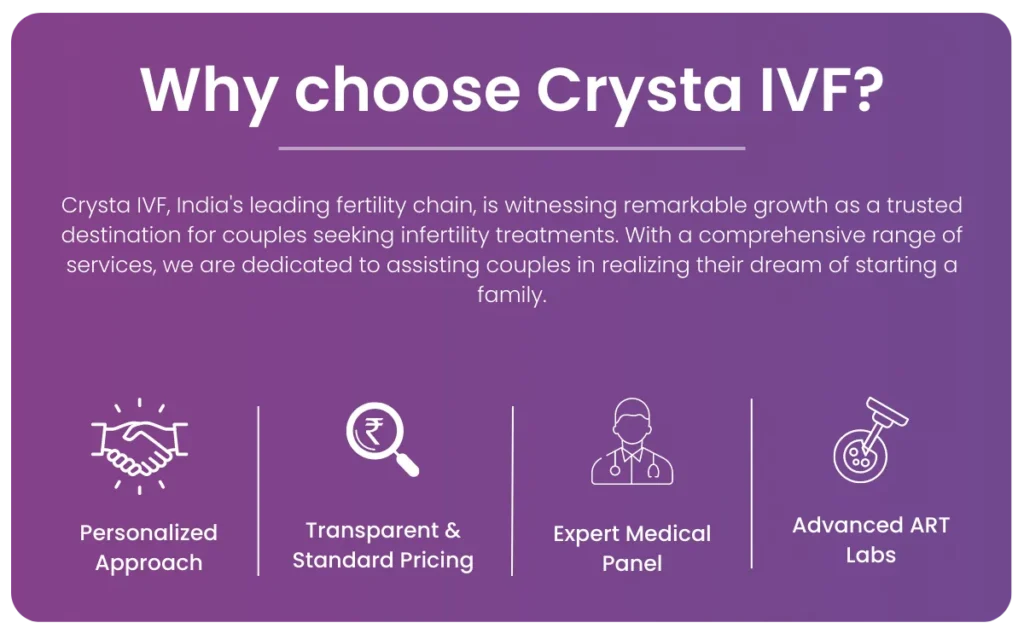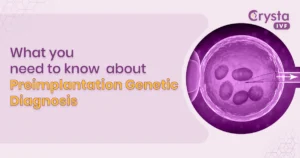Hyperthyroidism in pregnancy can lead to risk-causing for both the mother and baby.
When a woman has uncontrolled hyperthyroidism symptoms during pregnancy, there are possible chances of life-threatening medical conditions like premature labor and heart failure.
Pregnancy in thyrotoxic women can lead to stillbirth or incidence of fetal death despite hyperthyroidism treatment.
First things first! Let us understand the global statistics of infertility.
As per a research study, over 10% to 15% of couples are experiencing infertility.
Infertility is defined as the inability to naturally achieve conception despite being indulged in frequent intercourse for a year.
The reasons behind infertility are uncountable, and sometimes causes are not even known.
But, standing against all odds, various researchers have proved that only a woman cannot be held responsible for recurrent failed conception or failed pregnancies, and men can be infertile too.
Among prominent causes of infertility like lifestyle habits, consumption of birth-controls, etc., dysregulation in your thyroid gland’s functioning can also contribute to infertility.
Now you may question what hyperthyroidism is? and how can we differentiate between this and our body’s response to change in our surroundings?
What is Hyperthyroidism?
Hyperthyroidism is a thyroid disorder that happens to be caused by an overactive thyroid.
The thyroid gland is a butterfly-shaped gland located at the basal part of our neck just above the adam’s apple.
It plays a crucial role in our endocrine system as it looks after regulating our essential and necessary bodily functions such as hormone level regulation, metabolism, energy production, oxygen utilization, and many more that we will unfold and throw light on with this course of the matter.
The thyroid is the part that deals with the regulation of hormonal levels, making it a crucial factor in hyperthyroidism during pregnancy. Thyroid disorders are prevalent in both males and females.
Hyperthyroidism effect on pregnancy
The thyroid is an endocrine gland, which regulates the development and functioning of other bodily systems.
It is imperative to control and maintain metabolism, energy production, hormone levels, and oxygen utilization. Apart from this, thyroid hormones also play an important role in conception and pregnancy.
Studies have shown that women experience thyroidism four times as compared to men.
Thyroid hormones affect fertility as these are the hormones that regulate ovulation and are also responsible for fetal brain development. Change or disturbances in the thyroid gland can also lead to miscarriage when left unattended.
Noticing an unexpected flux of weight loss and increasing an appetite?
Are you wondering if it is your body’s response to the weather change or an actual call of alarm?
Such common forms of change in everyday behavior can be an apparent sign of hyperthyroidism.
We often neglect specific changes in our lives and assume them to be necessary alterations in our daily lives. But things like easy fatigue, sweating, or elevated blood pressure are some of the widespread hyperthyroidism symptoms.
Symptoms of Hyperthyroidism
Hyperthyroidism symptoms in females during pregnancy may seem similar to those of normal pregnancy, like sensitivity to hot temperatures, an increased heart rate, and fatigue. Other prominent symptoms of hyperthyroidism include the following:
- Unintentional weight loss, even if your food intake and appetite remain the same
- Irregular heartbeat, called arrhythmia
- Rapid heartbeat, called tachycardia, which is more than 100 beats per minute
- Increased appetite
- Palpitations or fast pounding of the heart
- Breast development in men
- Trembling of hands
- Elevated blood pressure
- Excessive sweating
- Change in the menstrual cycle
- Increased sensitivity to heat
- Goiter or swelling on the basal part of the neck
- Disturbed bowel system
- Difficulty in sleeping
- Fine, brittle hair
- Thinning of the skin
How is hyperthyroidism caused?
There remains a handful number of reasons regarding why and how one gets prey to such a disorder.
Firstly it is to see how hyperthyroidism is caused.
The thyroid gland produces certain hormones, out of which one is tetraiodothyronine (T4).
It is responsible for regulating the metabolism of the body. When secreted more than the desired amount, it can result in hyperthyroidism.
As per its prime function, T4, when secreted in an increased amount, contributes to an excessively high metabolic rate.
Causes of hyperthyroidism
Now to see how the T4 hormone gets accumulated in excessive amounts, there remain specific medical reasons why it happens.
- Grave’s disease: It is considered one of the most common causes of hyperthyroidism in women. It is an autoimmune disorder wherein the antibodies produce too many T4 hormones.
- Plummer’s Disease: It occurs due to the hyperfunctioning of thyroid nodules where one or more adenomas produce more T4 hormones than required levels. Noncancerous lumps are formed around the walls, which leads to enlargement of the thyroid.
- Thyroiditis: The inflammation of the thyroid gland and can occur in three different ways:
- Subacute: Caused due to a virus or bacteria, the thyroid gets enlarged and also a bit painful.
- Postpartum: Inflammation caused after pregnancy.
- Silent: Caused due to an autoimmune condition where the thyroid gets enlarged and remains painless.
Diagnosis of Hyperthyroidism in Pregnancy
In pregnancy, hyperthyroidism is diagnosed by observing thyroid symptoms, body examination, and blood work to test thyroid-stimulating hormone (TSH) and thyroid hormones T4 and T3.
Increased levels of thyroxine and low or nonexistent components of TSH state an overactive thyroid.
The amount of TSH is crucial because it’s the hormone that encourages the thyroid gland to produce thyroxine.
Hyperthyroidism treatment
There are various methods available for the treatment of hyperthyroidism in women.
The best hyperthyroidism treatment relies majorly on the woman’s age, physical condition, a prominent cause of the hyperthyroidism, and the severity of the medical condition.
Some of the popular treatments of hyperthyroidism in women are:
Anti-thyroid medications
Doctors prescribe anti-thyroid medicines to women diagnosed with hyperthyroidism during pregnancy. These medicines are prescribed to lessen or eliminate the hyperthyroidism symptoms. Anti-thyroid medications treatment is a time-consuming treatment as the medications continue for at least a year to cure it.
Hyperthyroidism treatment through Radioactive Iodine
For women diagnosed with hyperthyroidism during pregnancy, radioactive iodine treatment proves to be a permanent treatment of hyperthyroidism. In this treatment, the iodine-absorbing thyroid cells are eliminated or killed. The patient doesn’t need hospitalization as radioiodine is quickly consumed by mouth or orally. Studies and treatment results have shown that patients have shown signs of recovery with a single dose of radioactive iodine treatment.
Surgery
Surgical treatment of hyperthyroidism is less popular as compared to other treatments. It is performed on patients where medications didn’t show effective results or failed to cure the condition. Most of the thyroid gland is removed in Thyroidectomy. The surgical methods to treat hyperthyroidism pose certain risks about causing damage to parathyroid glands and vocal cords.
A doctor’s call
Experiencing recurrent miscarriages or failed conceptions are alarming signs of infertility. If you cannot conceive, then contacting the best IVF clinic in Delhi would prove helpful. One must understand and give utmost focus to the symptoms of hyperthyroidism during pregnancy. If you experience the hyperthyroidism symptoms mentioned above, then taking a doctor’s call will help you.





